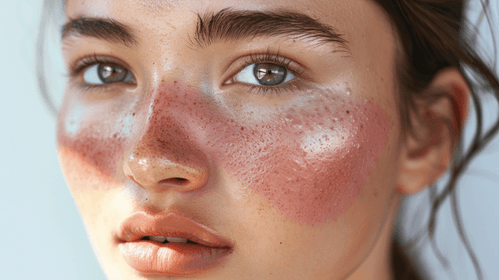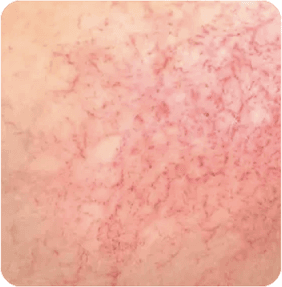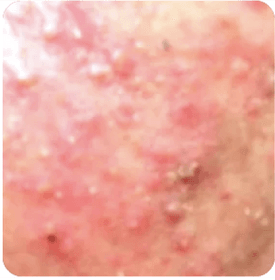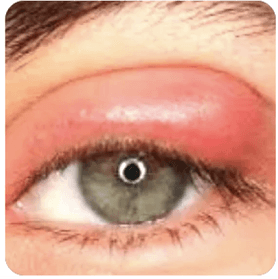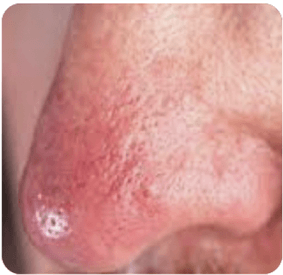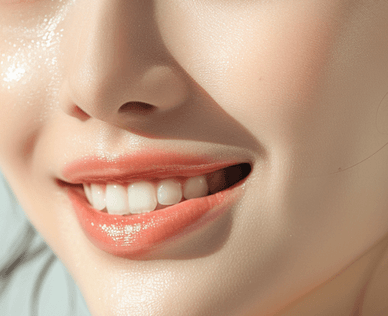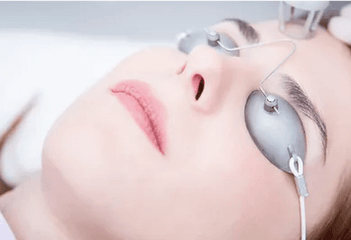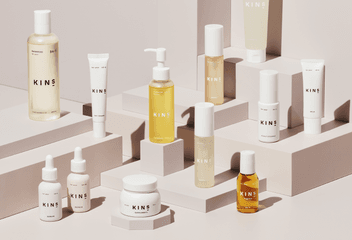 Dysbiosis and Inflammation:
Dysbiosis and Inflammation:
Research suggests that individuals with rosacea often have a disrupted skin microbiome, a condition known as dysbiosis. In rosacea patients, there is an overgrowth of certain harmful bacteria, such as Demodex mites and Staphylococcus epidermidis, and a decrease in beneficial bacteria. This imbalance triggers an inflammatory response in the skin, leading to the characteristic redness, flushing, and visible blood vessels associated with rosacea.
 Involvement of Demodex Mites:
Involvement of Demodex Mites:
Demodex mites, microscopic organisms that naturally reside on the skin, are often found in higher numbers on the skin of people with rosacea. These mites can provoke an immune response and contribute to skin inflammation, aggravating rosacea symptoms.
 Immune System Response:
Immune System Response:
Dysbiosis in the skin microbiome can stimulate the immune system, leading to the release of inflammatory molecules. This immune response further dilates blood vessels, causing redness and flushing in rosacea-prone areas.
 Triggers and Flare-ups:
Triggers and Flare-ups:
Certain triggers, such as spicy foods, alcohol, and sun exposure, can disrupt the microbiome temporarily. These triggers might encourage the growth of harmful bacteria or provoke an inflammatory response, leading to rosacea flare-ups in susceptible individuals.
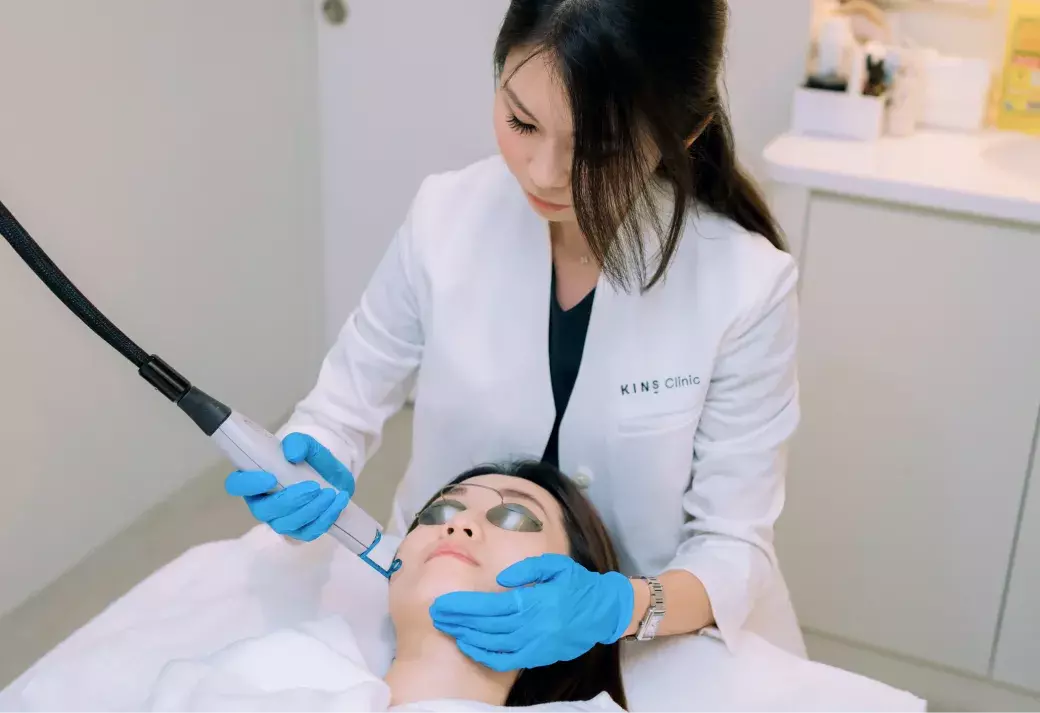 Treatment Approaches:
Treatment Approaches:
Understanding the relationship between the skin microbiome and rosacea has led to innovative treatment approaches. Probiotics and topical formulations containing beneficial bacteria (probiotics) are being explored to restore a healthy balance in the skin microbiome. These treatments aim to reduce inflammation and promote a more stable, balanced environment on the skin, potentially alleviating rosacea symptoms.
In summary, the delicate balance of the skin's microbiome is intricately linked to the development and progression of rosacea. Maintaining this balance through targeted skincare, avoiding triggers, and exploring emerging treatments that focus on microbiome restoration are crucial steps in managing rosacea effectively.
Skin Redness & Rosacea Treatment in Singapore
Achieve Glass Skin With Rosacea Treatments For Lasting Results
Rosacea is a chronic skin condition characterized by persistent redness,primarily on the cheeks and forehead. Common symptoms include redness and flushing of the cheeks, forehead, and nose, visible small blood vessels under the skin, and the appearance of small pimples. While the exact cause is unknown, factors such as UV exposure, alcohol consumption, and temperature changes are believed to worsen the condition.
Early treatment is essential for maintaining clear and healthy skin. Our expert team offers personalized treatment to help you achieve and sustain beautiful skin. Don’t endure Rosacea; seek early treatment.
Visit KINS Clinic to restore your skin's natural beauty.
Specialized Rosacea Treatment at KINS Clinic
Analysing your
Rosacea Condition
Erythematotalangiec tatic Rosacea(ETR)
The face becomes red, and there is dilation of capillaries. There is also a sensation of warmth and stinging.
Acne Rosacea
Red bumps and pus-filled pimples similar to acne are present. There is also a sensation of warmth and stinging.
Ocular Rosacea
There is redness in the eyes, a sensation of a foreign body, itching, dryness, and sensitivity to light.
Rhinophyma
There is the formation of nodules centered around the nose.
Unsure of your skin condition?
Distinguishing between acne and rosacea can be challenging due to their overlapping symptoms, yet the treatment approaches for each condition differ significantly. If you are uncertain about your specific skin condition, we recommend seeking consultation from a professional for accurate diagnosis and personalized guidance.
KINS Clinic in Singapore provides specialized rosacea treatment, leveraging over 30 years of expertise. Our unique approach combines an original Microbiome Skincare Solution, developed from Asian skin samples, with cutting-edge laser treatments to provide effective and personalized care for every patient. Microbiome treatments effectively heal skin and calm redness, developed by local dermatologists and microbiome experts from Japan.
With a dedicated team of experienced dermatologists, KINS Clinic provides high-quality, patient-centered services.
Transform Rosacea to Glass Skin
with Medical Rosacea Treatments
1.
2.
Balance Your Skin's Microbiome
The microbiome, a community of bacteria on our skin, plays a crucial role in rosacea.
Understanding and maintaining a healthy skin microbiome through gentle skincare practices may help manage rosacea symptoms by preventing bacterial imbalances and reducing skin irritation.
We treat facial redness, bumps, and dilated capillaries. The primary treatments are topical and oral medications, but we also offer laser and light therapies for dilated capillaries as elective treatments.
improve the condition and reduce redness:
How is Rosacea related to Microbiome health?
The microbiome, a community of bacteria on our skin, plays a crucial role in rosacea. When this balance is disrupted, it can trigger or worsen rosacea symptoms. In people with rosacea, the skin's microbiome is often different, with an overgrowth of harmful bacteria. These bacteria can cause inflammation and redness. Understanding and maintaining a healthy skin microbiome through gentle skincare practices may help manage rosacea symptoms by preventing bacterial imbalances and reducing skin irritation.
Here are some ways how Rosacea could be triggered due to unhealthy Microbiome:




